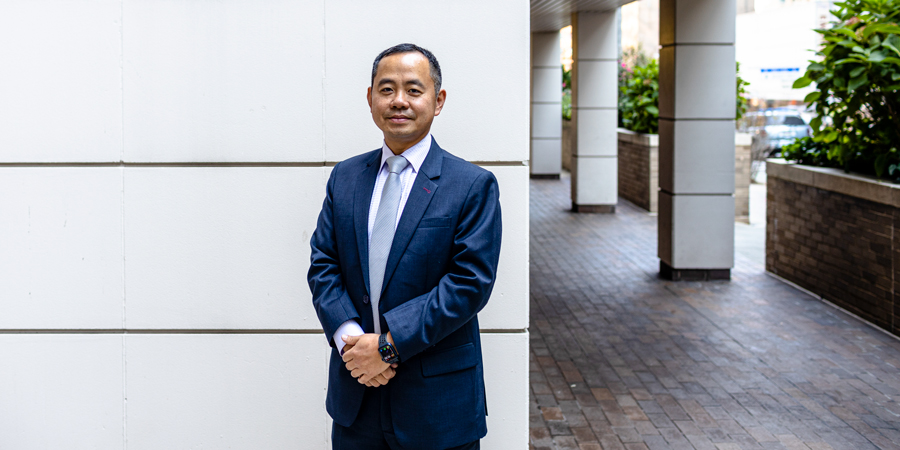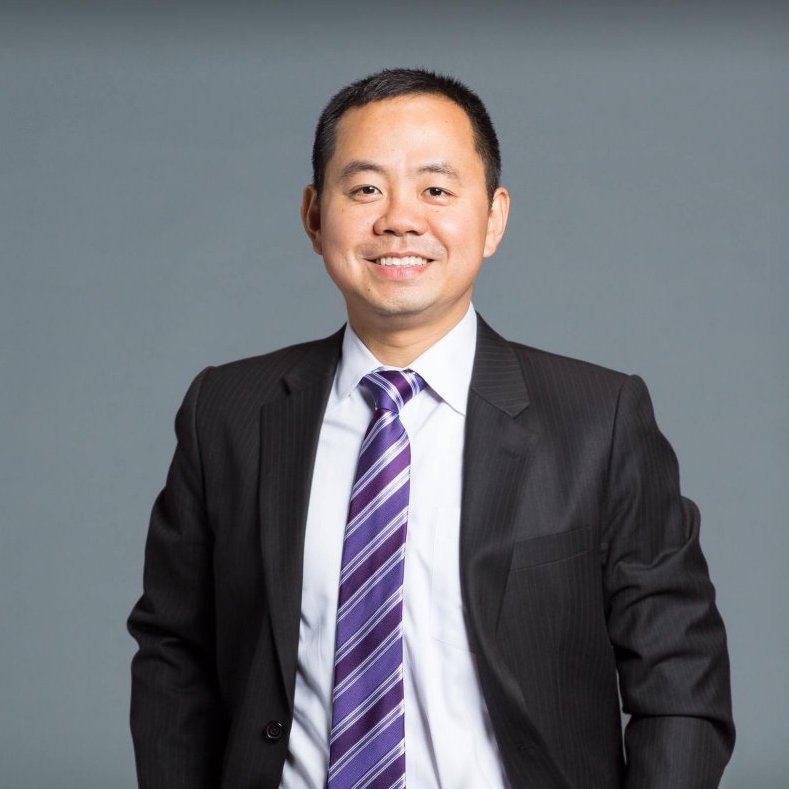Ilseung Cho, MD, a gastroenterologist, has served as Assistant Chief Quality Officer and now Chief Quality Officer for NYU Langone Health during a remarkable era for the hospital system. From its moment of near-collapse in the mid-2000s, NYU Langone’s Manhattan campus has transformed into a national beacon of care quality and innovation while the hospital system has grown substantial new footprints in Brooklyn and Long Island through major hospital mergers.
Today, the fully integrated NYU Langone Health hospital system holds a nearly incredible set of accolades—ranked #3 in the country and #1 in New York by U.S. News & World Report Best Hospitals while receiving an “A” top-safety rating from Leapfrog; a five-star CMS rating for quality, safety and patient experience; and Vizient’s #1 Quality ranking.
Still, Dr. Cho explains that NYU Langone’s “secret sauce” for growing while advancing highest-quality care lies beyond all of the metrics in a unique ethos focused on providing only the best to each patient, their loved ones and communities. Here, Dr. Cho discusses his vision as Chief Quality Officer and what initiatives are on the horizon for the hospital system.
Embracing Care Quality as a Mission
Physician Focus: What motivated you to take on the work of a Chief Quality Officer?
Dr. Cho: This work is very personal for me, just as it is for our patients and their families. I started having an interest in quality and safety after a family member of mine suffered a surgical site infection. When we were told that these infections almost never happen, that was of little consolation. It felt like something being said to make the surgeon feel better, rather than my family member. Metrics and rates are important for how the hospital runs, but to someone who suffered a complication of care, their personal rate is 100 percent.
What I took away from that experience is that each of the quantitative measures we consider represents a real outcome for those who entrust us with their care. That is why the journey to constantly improve the quality of the care we deliver never ends. We should continually strive to reduce mortalities, reduce preventable harm, and improve the experiences that our patients have when they interact with our health system.
“I started having an interest in quality and safety after a family member of mine suffered a surgical site infection. When we were told that these infections almost never happen, that was of little consolation.”
Ilseung Cho, MD
Physician Focus: How do you implement that personalized, patient-centered focus on quality in a complex and growing health system that runs, by necessity, on the capture of metrics and data?
Dr. Cho: NYU Langone’s leadership has made an exceptional commitment to developing a culture where all clinicians and staff are encouraged to be open about communicating their challenges and successes. In my role, the most valuable information I receive often comes from the clinical leaders, both providers and nurses, who are frequently at the bedside. In a way, my job is to amalgamate all of the qualitative insights that come from our bedside nurses, NPs, PAs, residents, and others.
For example, a recent conversation I had with one of our transport staff in an elevator uncovered opportunities to improve their workflow and efficiency. It was one of the most important discussions I had that week.
That is why I say that even our most sophisticated dashboard or metric is not NYU Langone’s secret sauce. Our secret sauce is how we engage every clinician and staff member who feels dedicated to the service of helping patients and improving care.
“Even our most sophisticated dashboard or metric is not NYU Langone’s secret sauce. Our secret sauce is how we engage every clinician and staff member who feels dedicated to the service of helping patients and improving care.”
Righting a Flagship Hospital, Building a Quality-Driven Health System
Physician Focus: Looking back, how would you distill the strategy that has allowed NYU Langone to transform the fate of our main Manhattan hospital, which appeared to be very dire around 2007, while adding two other major hospitals with their own challenges to our system—and now achieving the same top quality and outcomes measures across the board?
Dr. Cho: In my opinion, the change we’ve seen over the past 15 years has been driven by two primary components: culture and data. Culture defines what is important or not to an organization like ours. And we have planted our flag around providing the highest quality of care. Our culture reflects that. Our work to become a high-reliability organization reflects that. Every member of this organization from the senior leadership down understands that we are aiming to provide the highest quality of care because it is ingrained in our culture.
Along with that, we have been very innovative about the use of data, metrics, and goal-setting. We’ve created a remarkable system to measure the quality of care, to identify whether we are adhering to our processes, and to share that data transparently with our teams in the form of dashboards. This is vertically integrated from our hospital leadership to our staff as well as horizontally across our entire healthcare system.
Fundamentally, we expect that the quality of care delivered at each of our sites is the same. We have set the expectation that all our patients receive the same high quality of care, regardless of whether they come to us in Manhattan, Brooklyn, or Mineola (Long Island). This expectation of high-quality care holds as we engage in hospital mergers—a recent JAMA article highlighted our success in bucking the national trend of diminished care quality that often accompanies health system growth.
“We have set the expectation that all of our patients receive the same high quality of care.”
Our CMS rating and U.S. News and World Report rankings reflect the aggregate performance of all our hospitals. This is, frankly, different from the way many other health systems operate, where they report only on their “flagship” hospital but not the other hospitals in the system.
Advancing the Vision of a Healthier NYC
Physician Focus: What are your top priorities ahead to continue advancing quality and outcomes?
Dr. Cho: Equity and healthcare disparities is the next challenge that we must and will overcome. We should be transparent about the fact that healthcare in this country has provided disparate and inequitable care for a long time. We have a moral obligation to address this and to eliminate biases wherever we uncover them, whether they relate to race, ethnicity, sexual orientation or gender identity. This is a challenge but I’m confident that, given the commitment of our leadership and staff, we can and will do better.
Physician Focus: Lastly, would you agree that in many ways the unique experiences of New Yorkers have shaped how NYU Langone embraces the model of a high-risk organization and the ability to adapt quickly and effectively to challenges?
Dr. Cho: What health system has weathered events like the blackout of 2002, Hurricane Sandy in 2012, and the first wave of COVID-19 in 2020 with such strength and resilience? Not a day goes by that I’m not in wonder and grateful for the people we have here at NYU Langone. There is no hospital system better suited to take care of New York City. Our hospitals reflect what is incredible about New York, and our teams bring incredible energy and innovation drawn from the rich diversity of our communities. Our work ethic mirrors the grit that we see in our families and friends.
Physician Focus: Thank you for your time, Dr. Cho.
Dr. Cho: Thank you.



